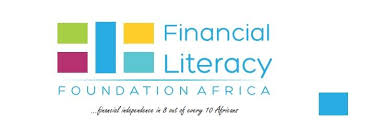The Financial Literacy Foundation Africa has launched a Financial Literacy for Coronavirus Alleviation programme (FLICA) which aims to provide education on how to handle economic and financial hardships arising from the Covid-19 pandemic.
This continental project will take place in all 46 countries in sub-Saharan Africa and aims to achieve financial independence for eight out of every ten individuals by 2030.
"The strategic approach will address attitudinal and behavioral barriers to our goal of financial wellness through public education on audio, visual, online, and on-air channels with resource materials in both official
and local country languages," the foundation has indicated.
As projected by the UN, the Covid-19 pandemic is likely to present a situation where nearly 30 million more people could fall into poverty.
The International Monetary Fund (IMF) has also estimated that the economic impact of the virus will be a global recession like the levels seen in the financial crises of 2008 that is, a 2.5% contraction and at best a no growth in 2020.
And the situation is expected to be worse in Africa where GDP is now projected to contract by 5.4% in 2020, a double of what was projected in April 2020.
FLICA will "educate individuals on personal financial prudence to mitigate financial crises emanating from reduced incomes, sudden job losses, and increased health costs due to the Covid-19 pandemic."
It is also to assist in closing the financial inclusion gap and help low-income earners as well as MSMEs, which constitute an important source of revenue for poor households, to achieve financial wellness, access available stimulus packages, make the most of their cashflows, tax returns, savings, credit, investments, mortgages, insurance, and pensions.
In addition, FLICA will employ consistent, strategic and collaborative partnerships with institutional stakeholders such as donor agencies, ministries of finance and economic planning, regulatory bodies, community service, education service, health service, security service, academia, industry and professional bodies in achieving financial wellness for all.
"It will also engage governments in addressing structural barriers to achieving long-term, continental improvements in institutionalizing financial literacy," the Foundation further indicated.
Latest Stories
-
Today’s front pages: Tuesday, April 23, 2024
18 mins -
Siblings remanded over alleged missing penis
19 mins -
174 countries to gather in Ottawa for pivotal talks on plastic pollution
23 mins -
6 tiny tricks that make you immune to disappointment
25 mins -
Dumsor: Energy sector needs a leader, says Nana Amoasi VII
26 mins -
Reality zone with Vicky Wireko: Ending malaria: Optimism as world marks Malaria Day
29 mins -
Frema Opare supports Asanteman queen mothers with GH¢200k donation
4 hours -
Government is committed to connecting every region with rail line – Peter Amewu
5 hours -
Chief of staff appeals to Asantehene for support in Affirmative Action Bill passage
5 hours -
PAC orders Wa East DCE to release MP’s common fund with immediate effect
5 hours -
Ghana will not bear the cost of repairing faulty train – Railways Minister
5 hours -
You’re not an engineer; we inspected rail tracks before test run – Amewu tells Mahama
5 hours -
Photography, music and networking: Twinsdntbeg leads the way
6 hours -
Man, 20, electrocuted after heavy rainstorm in Central Tongu District
7 hours -
Four more grabbed and remanded over new train accident
7 hours

